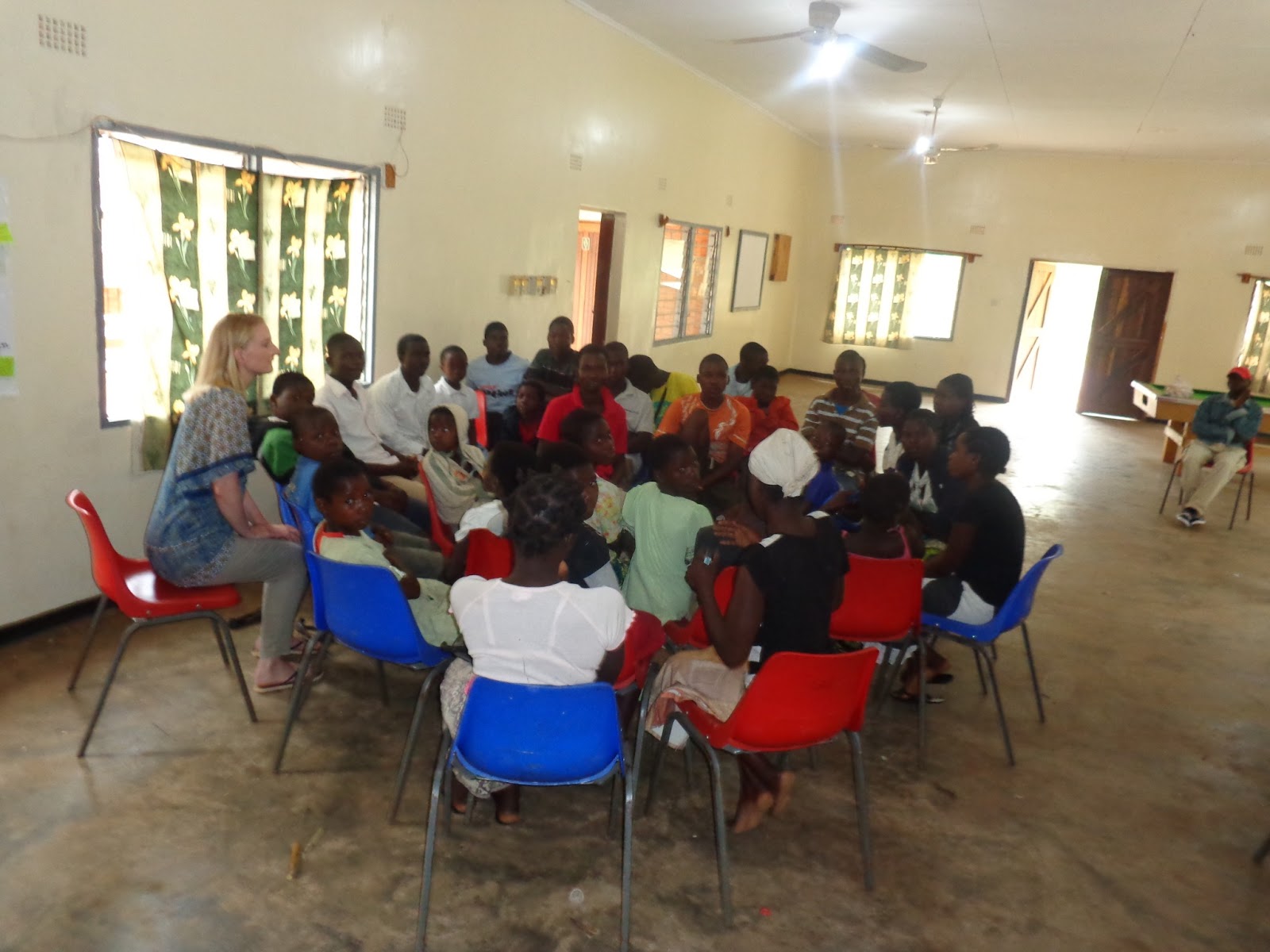We are so pleased to be able to blog about our first workshop. It took place on Saturday (21 July) at the youth centre within Mulanje Mission. We had planned it to run from 9-10am and had been assured we would have over 50 people attending. So, in true organised fashion, we turned up at the youth centre at half past 8 to meet the two student nurses from Mulanje Mission Nursing College - Juliana and Peter - and make final preparations etc.

By 9am we were ready to go and waited patiently for our workshop attendees. We were still waiting (although perhaps slightly less patiently) at 10am and we had a total head count of 2! However, our fellow student nurses didn't seem phased by this and sure enough at around half 10 (only an hour and a half late), the hall very quickly filled with over 50 participants. The age range was wider than we had anticipated and ranged from 7 years to late teens early twenties. Once everyone was settled we wasted no time in getting the workshop under way.
We split the larger group into two and asked these smaller groups to come up with a team name.Very quickly we had the Winners group and the Understanding group. With our groups settled and team names chosen we began the first activity.
The activities we chose aimed to encourage open discussion about HIV and AIDs topics.
Activity 1 - What is HIV and who can get it?
Activity 2 - Transmission and prevention of HIV
Activity 3 - HIV testing
During each activity we equipped each group with pictures in order to help facilitate discussion. For example, we gave each group a selection of pictures representing various different people including a nurse, a farmer, a business man, a baby, a hospital patient etc, and asked them to discuss which of these people can contract HIV. As well as using the pictures, we went round each group and tried to facilitate discussion by asking questions and provoking debate.

At the end of each activity, each group was asked to feedback to the larger group so that everyone could benefit from the answers the group had come up with. The feedback provided from each group was of a really high standard. Many of the participants were willing to stand up and talk in front of the group and provided really good points. A nice aspect of the workshops was with the wide age range, we found the older participants made an effort to include the younger ones and the in turn the younger children were able to gain some of the knowledge from them.

At the end of the activities we had a quiz with a mix of questions related to HIV and some general knowledge questions. Both groups did extremely well, with the Understanding group getting 11 out of 12 and the Winners groups (appropriately named) winning with 12 out of 12. The winning team were presented with their prize of a crate of fanta and all the participants from both groups were presented with a certificate of attendance.
We finished off the first workshop in true Malawian style with some music, and of course, some dancing.
From what we gathered everyone really enjoyed the workshop and after recovering from all the dancing, we are looking forward to round two, taking place on Saturday and we are hopeful people might only be an hour late this time!

 After we split everyone into their groups, we helped them come up with ideas and then left them to rehearse.
After we split everyone into their groups, we helped them come up with ideas and then left them to rehearse. 





















